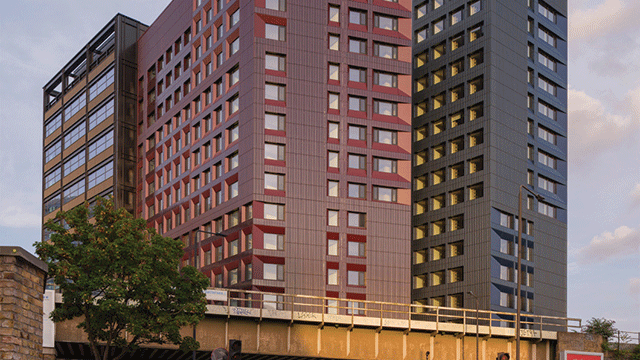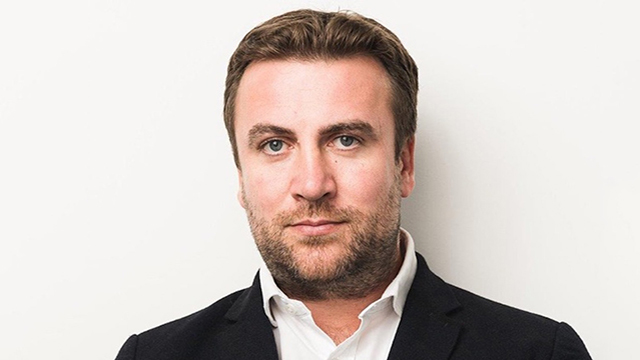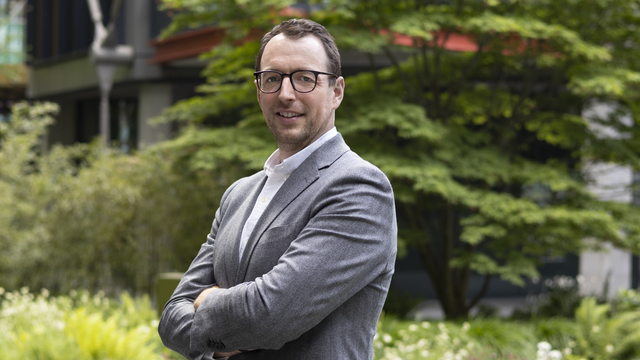The company thought it could quickly transplant successful North American retail and entertainment formulas to European markets
TrizecHahn has pulled out of its much-vaunted plan to stud the European continent with a series of shopping and entertainment complexes. It planned to build over 10 complexes in Europe’s major cities at a cost of between $3bn and $4bn, representing an equity investment of $500m over two years. It was expected to provide Continental retailers with the infrastructure to satisfy growing consumer demand for US-style shopping, and give an outlet to North American chains wanting expansion in Europe.
A harbinger of the abandonment of its European ambitions lies in its 1999 annual report. It said: “We have made great progress towards our goal of building a leading pan-European property company. Although our North American investors may not yet fully appreciate our European efforts, there is significant demand in the growing European capital markets for such an entity.”
But in July, a combination of pressure on the share price caused by American investors’ inability to understand the European venture, and chairman and chief executive Peter Munk’s growing frustration with the region’s red tape, caused the company to perform an about-turn. It will take a one-off hit of $42m on the move.
No-one at TrizecHahn was unavailable for comment, but a source close to the company said that president and chief operating officer Greg Wilkins has always been obsessed with shareholder value. If the returns were not there in Europe, or would take too long to come round, he wanted out.
Marketing analyst for European real estate at ABN Amro, Ward Kastrop, says: “TrizecHahn thought it would be easy to come into Europe and copy its own strategy in the US of developing fast-track retail real estate.
“But real estate is a local business,” says Kastrop. “If you apply the same business model as the US or Canada to Europe, it doesn’t work. You should have local knowledge of what consumers really need. Real estate is a hand-shaking business. It’s about who you know.
“TrizecHahn was building local teams and worked with local partners, but it doesn’t mean immediate success. They should have put in more time,” he adds.
For the time being the company is staying with a number of big projects in Spain, Gran Canaria, Germany and Hungary to oversee their completion, but it will sell them within three years.
In Spain, it has a Û425m (Pts70bn) joint venture with Spanish developer Riofisa Group that is developing four retail and entertainment centres totalling 248,000m2 in Madrid, Cadiz and Gran Canaria.
According to the managing director of a rival foreign property company active in Spain: “TrizecHahn has very good projects in Spain, even though many of them have suffered from very serious delays.”
The rival says: “The difference between Spain and some other countries was an early agreement with Riofisa, who needed TrizecHahn’s money, and so it managed to develop a critical mass in Spain to make it worth staying in.”
In Italy, TrizecHahn opened an entertainment centre called Porto Allegro in Pescara on the Adriatic coast.
The head of a leading property agency in Milan says: “Putting up shopping centres is a very difficult pastime here. You’re looking at one hell of a timescale and a battle.
“They brought access to capital and were full of ideas, not all of them importable to here,” adds the agent.
He also contrasts TrizecHahn’s approach with that of US developer Hines, which secured a joint venture with a long-established local builder/developer COIMA to redevelop a 16,000m2 office building in the trade fair district in Milan, which is almost fully prelet.
In Germany, TrizecHahn is planning a 267,000m2 entertainment centre in central Frankfurt and has teamed up with local firm EIM, the development arm of the country’s railway company Deutsche Bahn.
But even so, Munk has expressed incredulity that three years into the project, a start on site has yet to happen, despite an expanding economy and a strong and efficient local partner.
There are questions as to what shape TrizecHahn will be in a year’s time. According to analyst David Harris based at Lehman Brothers’ New York office: “The company is in strategic flux, and we are finding it difficult to give an idea about its future earnings.”
Analyst Lee Schalop at CS First Boston, also in New York, says that TrizecHahn has a history of looking at opportunities and deciding at a moment’s notice to change direction. “The outsize returns that they thought were there in Europe are no longer available,” says Schalop.
TrizecHahn has already chosen one new direction in Europe by ploughing $160m into a joint venture with Global Switch and UK developer Chelsfield, which is headquartered in London. This will provide real estate to house secure and high-capacity telecoms facilities in Europe.
The sector is a growing one and TrizecHahn’s move into it is seen as a good one. Adds Schalop: “I would rather see them withdraw from a business that turned out to be unattractive, so I support their decision to sell up in Europe. But they are also selling all their Canadian office assets and I’m not certain if there are sufficient opportunities to reinvest all that money into technology-related real estate.”










